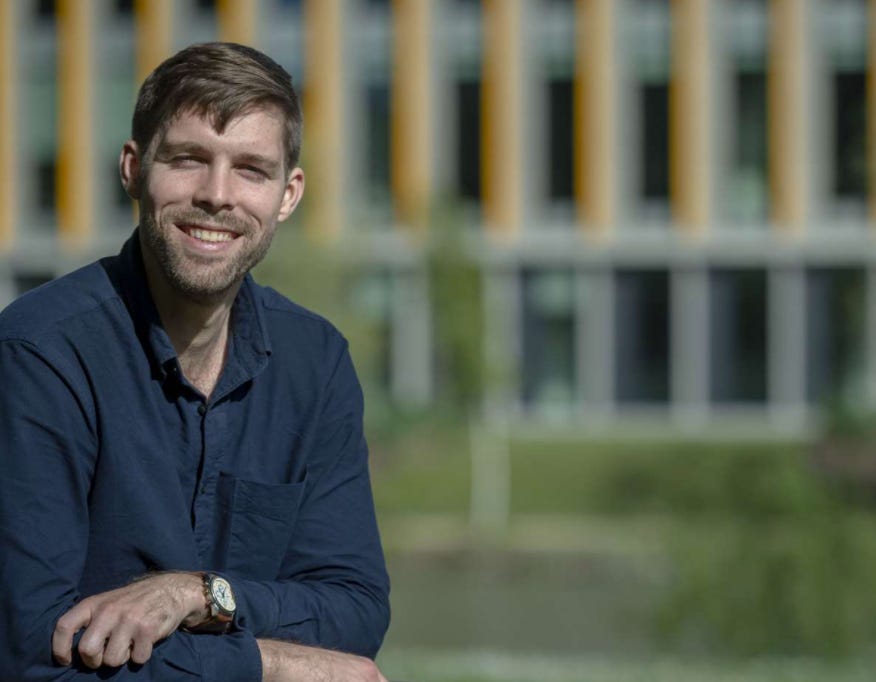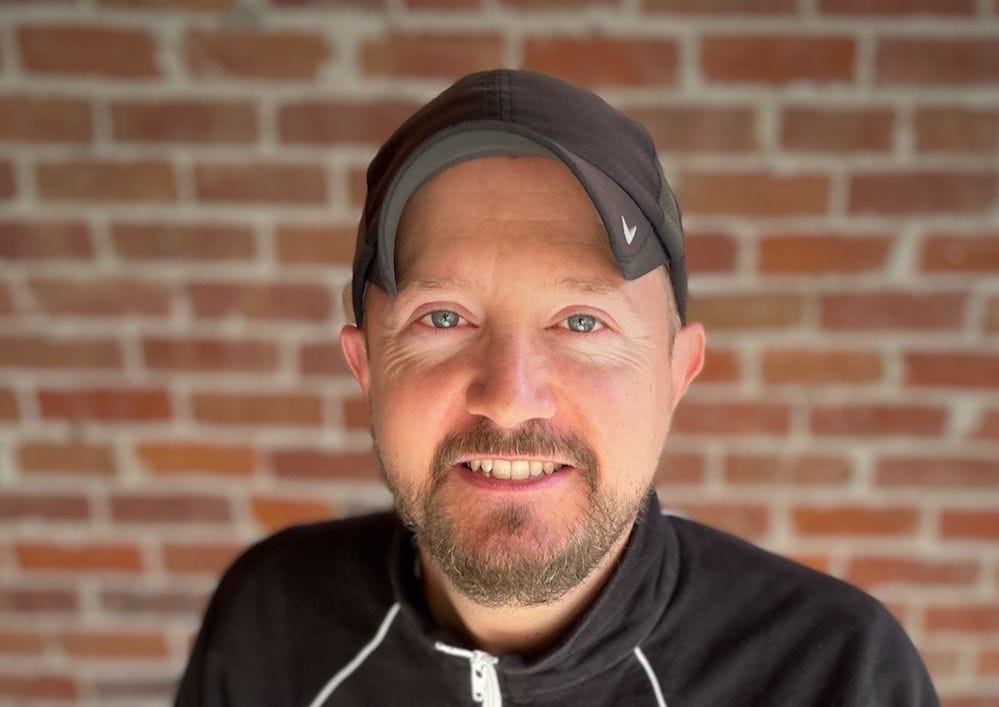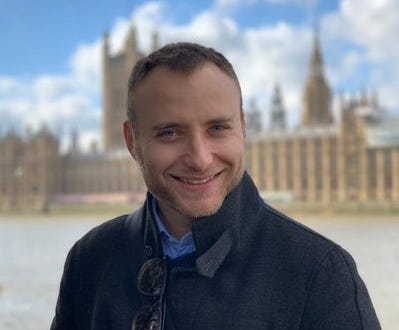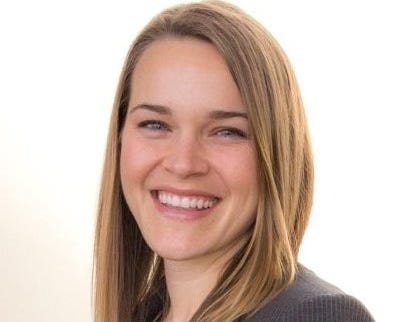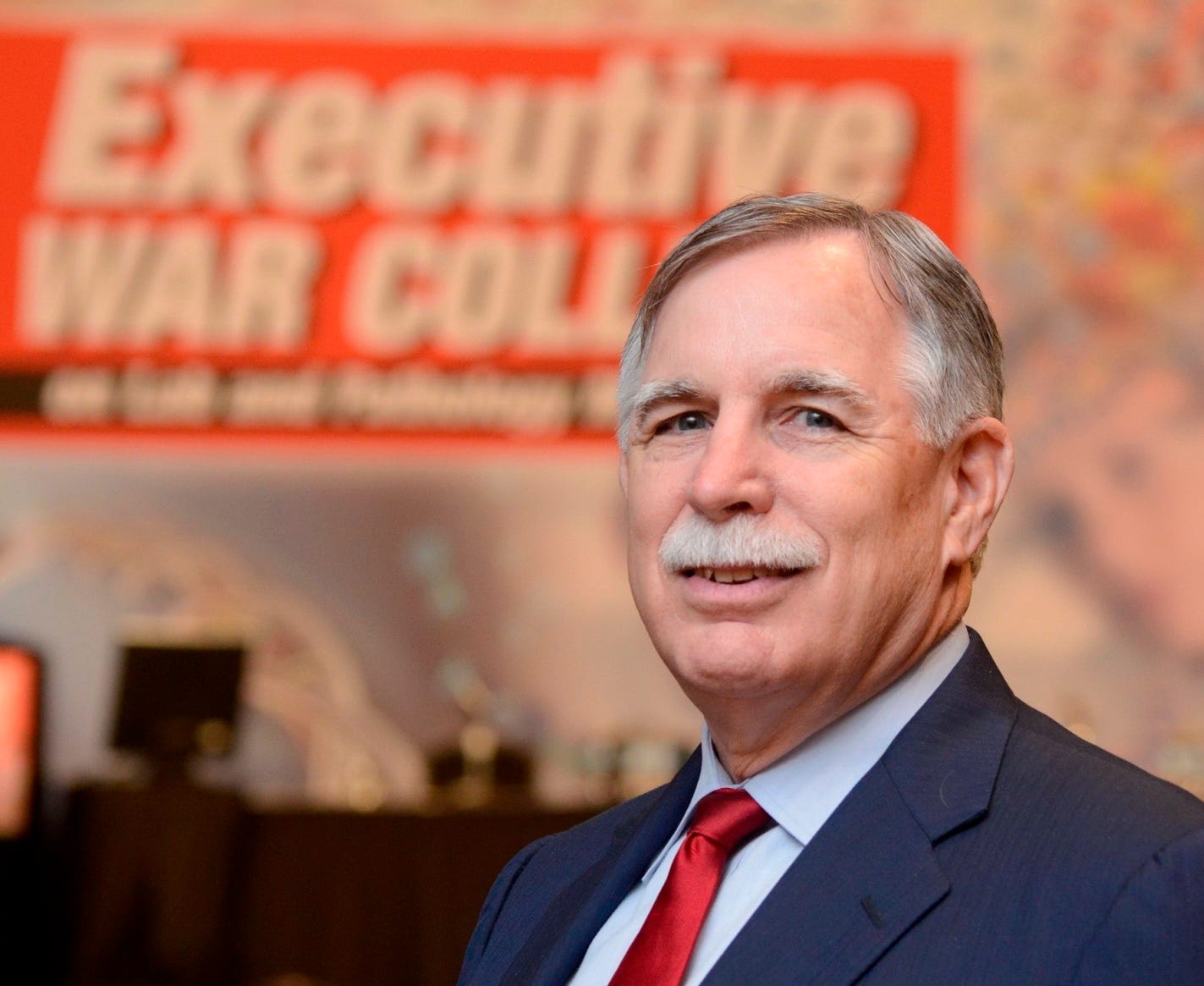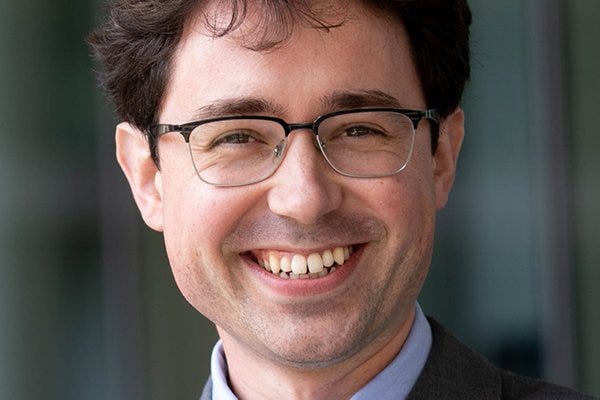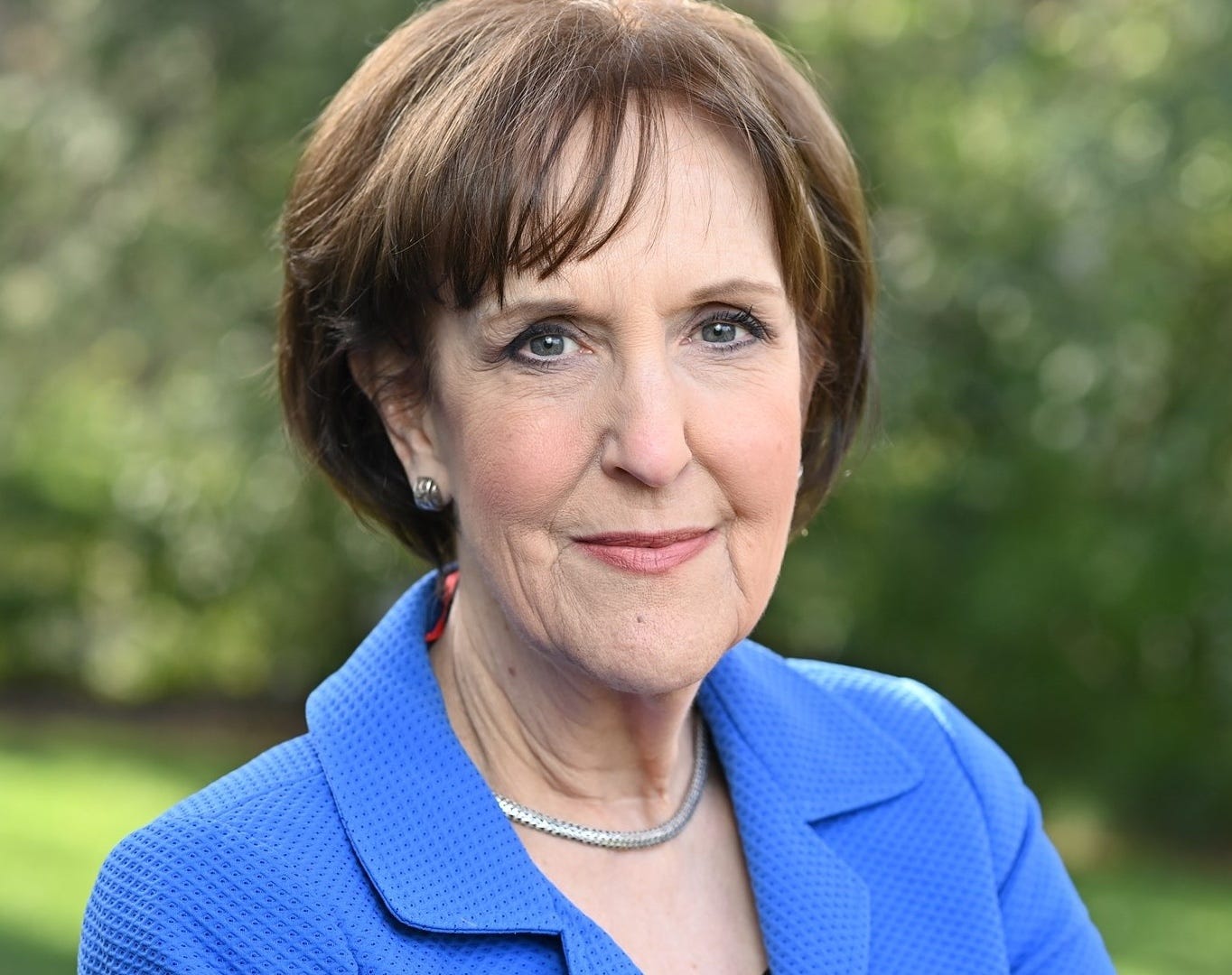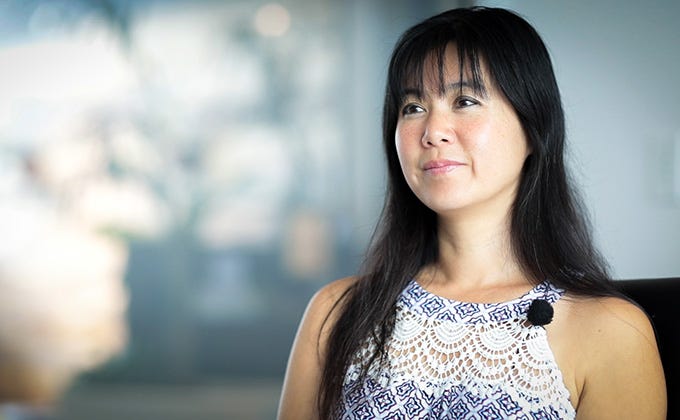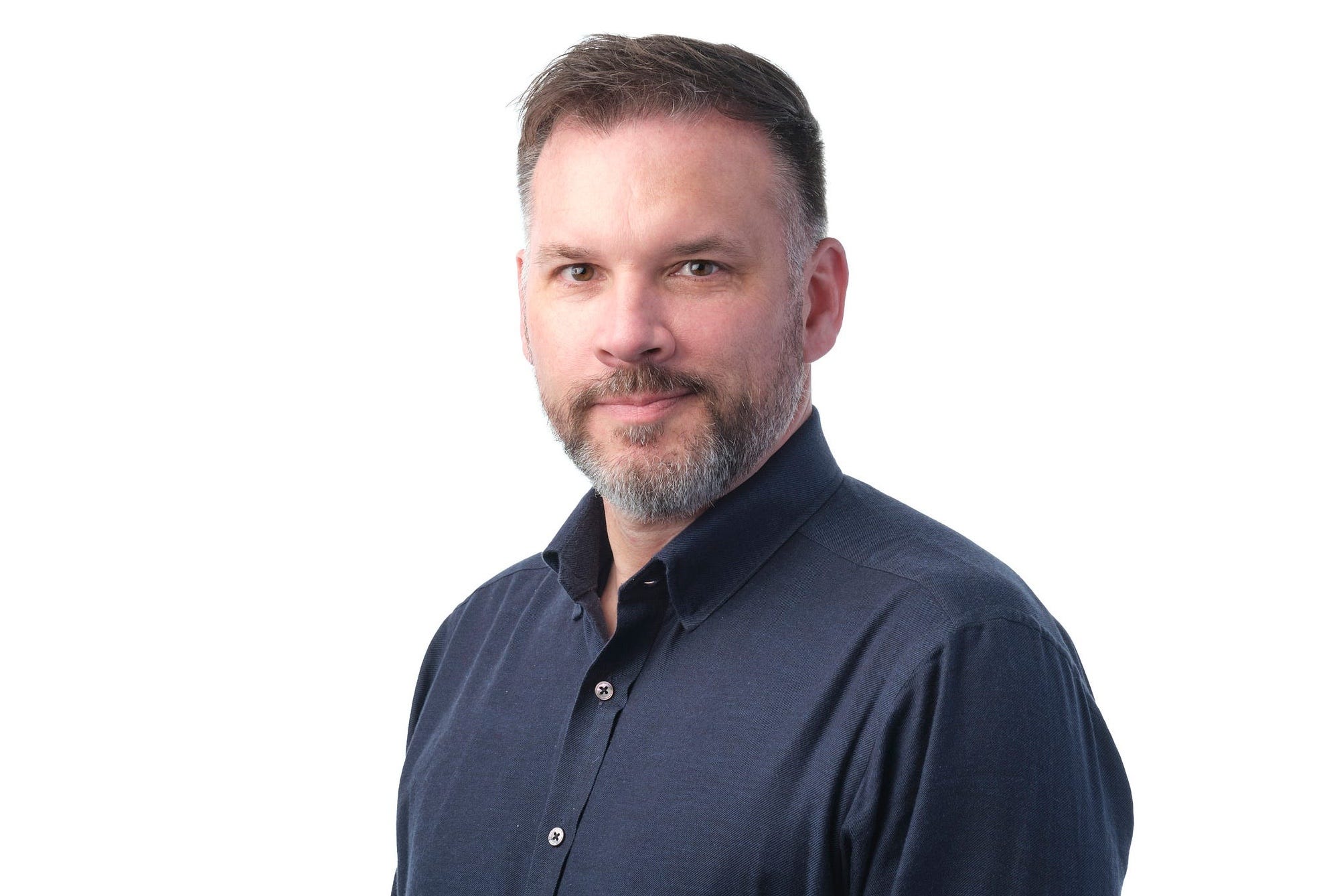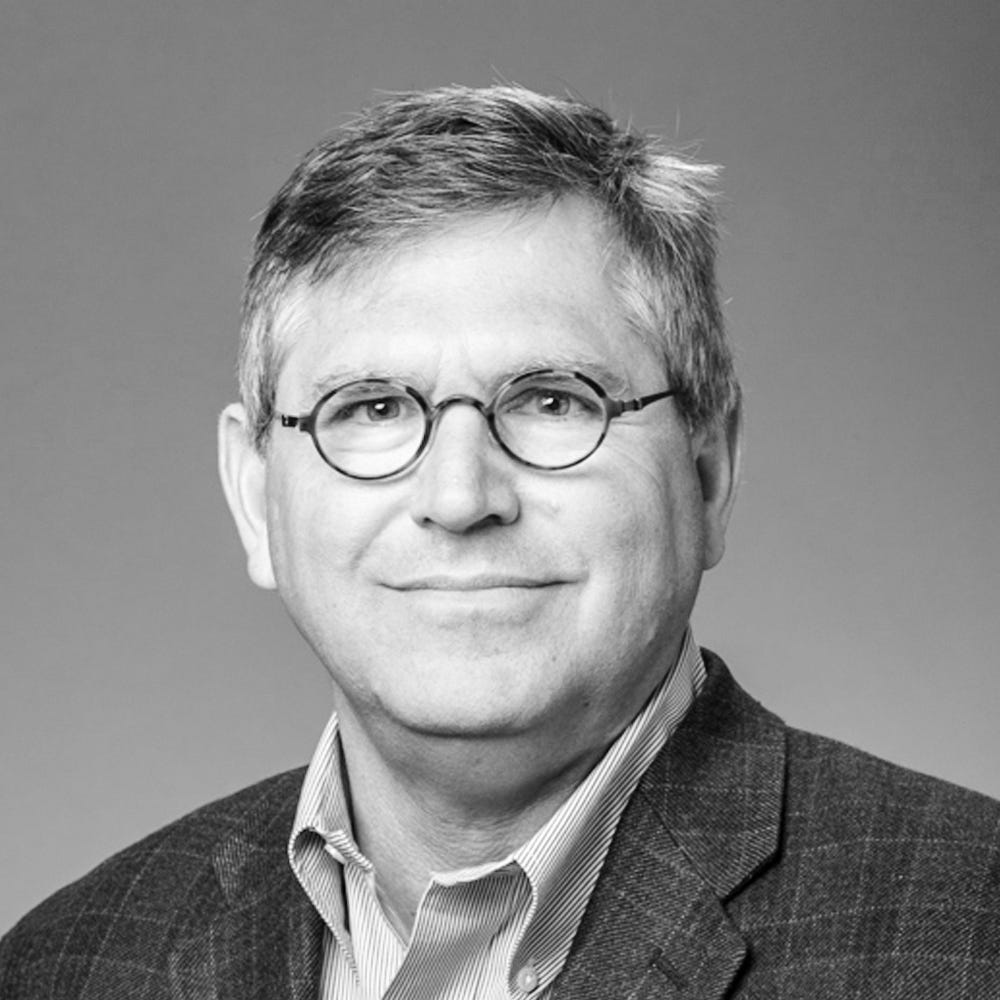Discover Mendelspod Podcast
Mendelspod Podcast

433 Episodes
Reverse
This is a free preview of a paid episode. To hear more, visit www.mendelspod.comSarah LeBaron von Baeyer studied anthropology at Yale. Today she serves as the Director of Ethics Engagement at the new drug development company, Variant Bio, not a job she ever imagined at university.
In today’s show, we talk with Kyle Fahr, the VP and Distinguished Scientist leading Illumina’s Artificial Intelligence Lab."We lack a way of training genomics AI as readily as you would for natural language processing, says Fahr. "There are vast amounts of data, but there are no labels, no supervision. One of the most powerful tools that we’ve found is using clues from natural selection.Fahr says the company began the AI lab seven years ago when deep learning took off. Two of the team’s AI algorithms, PrimateAI-3D and SpliceAI, published in Cell and Nature Genetics, were among the first examples of deep learning algorithms in genomics to become widely used by clinical labs and researchers in interpreting variants of unknown significance. We take a close look at Illumina’s work in AI and delve into the long-term impact of AI on genomics. This is a public episode. If you’d like to discuss this with other subscribers or get access to bonus episodes, visit www.mendelspod.com/subscribe
This is a free preview of a paid episode. To hear more, visit www.mendelspod.comToday, we continue our look into the gap in the adoption of precision medicine. Why are those who need it not getting genetic testing? Patrick Short is the Host of The Genetics Podcast and CEO and Co-founder of Sano Genetics.
This is a free preview of a paid episode. To hear more, visit www.mendelspod.comThrough its Center for Personalized Medicine, the University of Colorado Health offers its 2.2 million patients some of the country's most advanced precision medicine initiatives.
This is a free preview of a paid episode. To hear more, visit www.mendelspod.comA new spatial biology company is promising to shake up the field. Last month, Curio Bioscience launched a new technology to early access customers that provides transcriptomic spatial data without the need to b…
John Cumbers is back on the show to preview the annual SynBioBeta, the leading global conference for the synthetic biology crowd. This year’s show includes 18 tracks on AI, space, longevity, and DNA synthesis. Speakers will include Stephen Wolfram and Stephen Quake, who will discuss large language models and biology.While 2024 saw a total investment of over $6 billion (not as high as the pandemic year of 2021), John says the new technologies and startups keep coming."We’re seeing just a ton of new entrepreneurs coming out of graduate and undergraduate programs and starting companies.”John is the founder and CEO of SynBioBeta which takes place May 6-9th in the San Jose Convention Center. This is a public episode. If you’d like to discuss this with other subscribers or get access to bonus episodes, visit www.mendelspod.com/subscribe
Most of the news coming from Illumina has had to do with their leadership in the sequencing instrument space. What is lesser known is that they offer an end-to-end solution for the clinical lab, including variant calling and genome interpretation.In this podcast, we’re joined by Sam Strom, Principal Scientist at Illumina and a certified Clinical Lab Director. Sam comes to Illumina from the clinical testing side; for example, he’s co-chair for the expert curation panel for Parkinson’s Disease and sits on a working group at ClinGen.In the interview, Sam addresses two of the big challenges in clinical sequencing, which are variant calling and variant interpretation. Sam says Illumina has created its own multi-sample genomic reference and is also making use of artificial intelligence to improve variant calling. He also shares how Illumina supports scaling variant interpretation for genomes and other assays with an AI and automation comprehensive solution, enabling high-quality genetic testing workflows to reach next level accessibility.“I think we’re going to see more “lights out” testing where there really isn’t an interpretation component to the test. It’s a pure technical test. It has certain limitations. But it gets you 99.9% of the way there. The technology is ready." This is a public episode. If you’d like to discuss this with other subscribers or get access to bonus episodes, visit www.mendelspod.com/subscribe
This is a free preview of a paid episode. To hear more, visit www.mendelspod.comToday, we feature a new DNA synthesis company out of Sweden that is making a name with long, single-stranded DNA at scale. How long? Over 10,000 bases. Why single-stranded vs. genes? And what is meant by scale?According to Cosimo Ducani, CEO and co-founder of Moligo Technologies, the business of making DNA is just getting started. So much for thinking it was a mature business in the early 2000s when Integrated DNA Technologies (IDT) dominated the market.
The rise of RNA therapeutics and cell therapies promises to take us where we’ve never been in medicine. The growing understanding of RNA, mRNA, and circular RNA and their crucial roles in disease has led to their application in targeting previously “undruggable” targets. Meanwhile, new cell therapies are promising cures to diseases that have plagued us without mercy. Scientists now ask what can’t we do. Still, biology remains dauntingly complex.At the base of these fields is a revolution in biological engineering. One company stands out with the impressive vision of making engineering biology easier: Boston-based Ginkgo Bioworks. This past month, Ginkgo announced that it was buying three companies to boost its AI footprint in diagnostics and therapeutics. We think of burgers and perfumes, but Ginkgo’s customer base is impressively diverse. Today, we talk with Jennifer Wipf, Head of Commercial Cell Engineering at Ginkgo. Jennifer says FNA is giving drug developers “access to the cell” which is opening up a whole new approach to therapeutics. How does Ginkgo help out? What are the promises and challenges?We end with a question about Ginkgo’s new acquisitions to beef up its AI capabilities after last year's partnership with Google.“If you want to make biology easier to engineer, we need a way to answer some of these questions without doing a lot of lab work." This is a public episode. If you’d like to discuss this with other subscribers or get access to bonus episodes, visit www.mendelspod.com/subscribe
This is a free preview of a paid episode. To hear more, visit www.mendelspod.comChapters:0:00 Number one unmet medical need for dogs6:25 Using “extra label” for cross species12:57 Ideal for understanding human cancers21:25 Playing catch-up with human medicine28:04 1,000 pet clinic customersPrecision medicine for dogs?— as in tumor profiling for the right therapies to treat man’s best friends at the right time? Yes, that’s right. …
There’s a new genome editing company that everyone is talking about this year. Tome Biosciences came out of stealth in December, claiming the ability to insert DNA sequences of any size at any location across in vivo and ex vivo modalities. Their website says they’re “taking us into the final chapter of medicine.”Tome’s CEO, Rahul Kakkar, joins us today on the program. He’s a physician-scientist (cardiology) who has previously led a couple of biotech companies, Pandion Therapeutics and Corvidia Therapeutics, through initial funding and acquisition. Rahul says that even though we’ve seen incredible breakthroughs in the gene therapy arena, all of the current editing technologies are “profoundly limited.” That includes the technology for the first CRISPR-based drug approval, Casgevy.“Gene therapy today is putting a gene into a cell that has no relationship to the genome itself. It’s quite unrefined. From a clinical perspective, their impact is limited because their technology is limited.”Why so limited, and what is this great advancement in editing technology that everyone is talking about? Rahul says the tech is able to “reprogram” a cell.What are the history and current state of the company and this new technology? How are they dealing with the infamous “off-target effects?” And what is the overall opportunity?Rahul talks in grand terms. He says there is a need for genomic-based therapies if we’re going to move medicine away from treating to curing disease. This is a public episode. If you’d like to discuss this with other subscribers or get access to bonus episodes, visit www.mendelspod.com/subscribe
This is a free preview of a paid episode. To hear more, visit www.mendelspod.com0:00 Long reads at scale has made what difference?6:15 The long or short of it: How does one decide?12:31 Long reads in the clinic20:37 Apton tech to compete with Illumina’s NovaSeq X26:30 Plans for next instruments35:00 Surveying the competitionIn our first post-AGBT show of the year, we’re talking with the CEO of Pacific Biosciences, Ch…
Why aren’t more folks receiving genetic testing?In a study published in JAMA last year, Stanford cancer researcher Alison Kurian found a surprising gap between those who need genetic testing and those who receive it. Among more than a million patients with cancer, only 6.8% underwent germline testing.Today, we begin a new series exploring this gap in testing with Robert Michel. He's the Editor-in-Chief at The Dark Report, reporting on the laboratory industry since 1996. Robert says the problem is multi-faceted and argues that the leading cause is that it takes years for physicians to learn about a new area of medicine.“Factor number one is simply the speed of genetic science,” says Robert. "You’ve got to train the physician and for them to be able to incorporate genetics in their practice. It can take years for the average practitioner. Part two,” he says, "is reimbursement.”We spend the bulk of the interview discussing the role of pathologists in genetic testing, who he refers to as "the guardians of the medical purse."Robert also puts on the leading conference in the lab testing industry, the Executive War College Conference on Diagnostics, Clinical Laboratory, and Pathology Management. The conference for 2024 is coming up from April 30th to May 2nd in New Orleans. This is a public episode. If you’d like to discuss this with other subscribers or get access to bonus episodes, visit www.mendelspod.com/subscribe
Batten disease is a group of neurodegenerative lysosomal storage disorders that result from pathogenic variants in one of 13 CLN genes. Collectively, Batten disease affects approximately 1 in 100,000 individuals worldwide, making it the most common pediatric neurodegenerative disorder. The most common form of Batten Disease, CLN3 disease, is a rare and fatal autosomal recessive disorder caused by mutations in CLN3. Individuals with CLN3 disease typically experience vision loss in early childhood, followed by seizures, motor and cognitive decline, and premature death by the third decade of life. Importantly, despite decades of intense research, specific biomarkers of disease status have not been reported, hindering the clinical development of therapies.Today, two researchers join us to talk about how their use of new proteomics tools has pushed their biomarker research forward in novel ways. Jon Brudvig is the Director of Discovery Research and Gene Therapy at Amicus Therapeutics, where he leads biomarker discovery in neurogenerative disease. He is also an Assistant Professor in Pediatrics at the University of South Dakota. Bruce Wilcox is the Chief Technology Officer at PrognomiQ which is focused on early cancer detection and treatment. “Proteomics technology and the enthusiasm for it are advancing rapidly. Proteomics is at the stage where it is translating to tools that will help physicians and patients,” says Bruce. "It’s a lot of fun to talk about what we work on, not just from a research standpoint, but for the impact that is coming from this work." This is a public episode. If you’d like to discuss this with other subscribers or get access to bonus episodes, visit www.mendelspod.com/subscribe
After ten years, the human brain mapping project has achieved some major milestones, says Tom Nowakowski, a researcher at UCSF, on today’s program. He says that mapping the brain is a “moon shot” easily on par with the Human Genome Project.So much of biology is basic quantification. Brain scientists are beginning to quantify how many kinds of brain cells there are. They are learning more about the function of various cells such as glial cells.. And they are developing a common language with each other. A few years ago, if you put two brain scientists in a room together, they would not know how to speak to each other.One of the major technologies that have enabled this new quantification and characterization of the human brain is spatial genomics. Tom and other scientists have learned that there are 5,000 transcriptomic clusters that they associate with cell type. '“If you told me ten years ago when I was finishing my Ph.D. that one day we’d be making real progress on neurological and neuropsychiatric disorders without having to rely on a mouse model. I would think it was unthinkable. Here we are; we finally have technologies where you don’t need transgenic mouse models to make progress. That is just terribly exciting.” This is a public episode. If you’d like to discuss this with other subscribers or get access to bonus episodes, visit www.mendelspod.com/subscribe
Karen Tumulty, a political writer for the Washington Post, was diagnosed with multiple myeloma. She was told she had five years to live. Then she went to book club with friends. On the way home she came out about her diagnosis—and that changed her life. Someone in the car happened to be the President of the Personalized Medicine Coalition, Ed Abrahams. He made a referral and that led to better treatment and better survival. Karen’s story, along with that of her brother, is a must-listen for everyone involved in healthcare. How does Karen’s story line up with the industry’s stories we tell ourselves? Does she think that the tale of precision medicine is getting out there?“What blew me away at the recent conference,” she says, “was that so many amazing medical advances that I was thinking were way over the horizon are here.”Are they really here, if people have to be in the right book club to hear about them? This is a public episode. If you’d like to discuss this with other subscribers or get access to bonus episodes, visit www.mendelspod.com/subscribe
This is a free preview of a paid episode. To hear more, visit www.mendelspod.comFun fact: we are composed of 90% bacterial cells and 10% human cells. Surely, the company that begins to turn that knowledge into health products will be the next billion-dollar startup. Pendulum Therapeutics is doing just that. Started in 2012, the company now boasts a full product line of probiotics that are not your typical probiotics. In 2020, the company released a scientific study showing that their glucose control product lowered blood glucose spikes by 30%.“It’s the first microbiome product that has shown that kind of efficacy,” says Pendulum CEO Colleen Cutcliffe. “We did a placebo-controlled double-blind, randomized trial that showed that compared to placebo, people who were on this formulation could see their A1C go down by 0.6 points, which can be the difference between having diabetes or not.”Colleen is a return champion here on the show, and it’s great to see the company raising real money and pioneering the microbiome space with credibility. Will naturally occurring probiotics become the next breakthrough in therapeutics? We’re talking about the "safety of a probiotic with the efficacy of a drug."
This is a free preview of a paid episode. To hear more, visit www.mendelspod.com"We can now begin to look at disease before it happens,” says today’s guest, Todd Druley. He’s the Chief Medical Officer at Mission Bio who has been offering the world’s first single cell and multi-omics instrument.
This month, the FDA approved the first CRISPR-based gene therapy called Casgevy (pronounced with a soft g). It’s a one-and-done treatment for sickle cell disease and is being hailed as major step forward in medicine. Joining us to discuss this breakthrough is our return champion, Kevin Davies, author of Editing Humanity: The CRISPR Revolution and the New Era of Genome Editing and Executive Editor of the CRISPR Journal and GEN Biotechnology.Kevin takes us into the science of the new gene therapy and what it means for patients. He also gives a captivating history of sickle cell disease itself. How will sickle cell patients afford the $2.2 million price list? How has CRISPR as a tool been evolving this year? What other areas are heating up for gene therapy? And we do a little catch-up on a certain scandal around genome editing. This is a public episode. If you’d like to discuss this with other subscribers or get access to bonus episodes, visit www.mendelspod.com/subscribe
This is a free preview of a paid episode. To hear more, visit www.mendelspod.comMany of our shows this year have explored a new wave of proteomics tools and research. So today, we wanted to get a snapshot of the field of proteomics, and to do that, we turned to John Yates III, Ernest W. Hahn Professor at The Scripps Research Institute. John was on the proteomics side of the famous Lee Hood lab in the 1980s. The most exciting work to come out of Hood’s lab was the first automated DNA sequencer commercialized by Applied Biosystems and led by Mike Hunkapillar, also from the lab.




